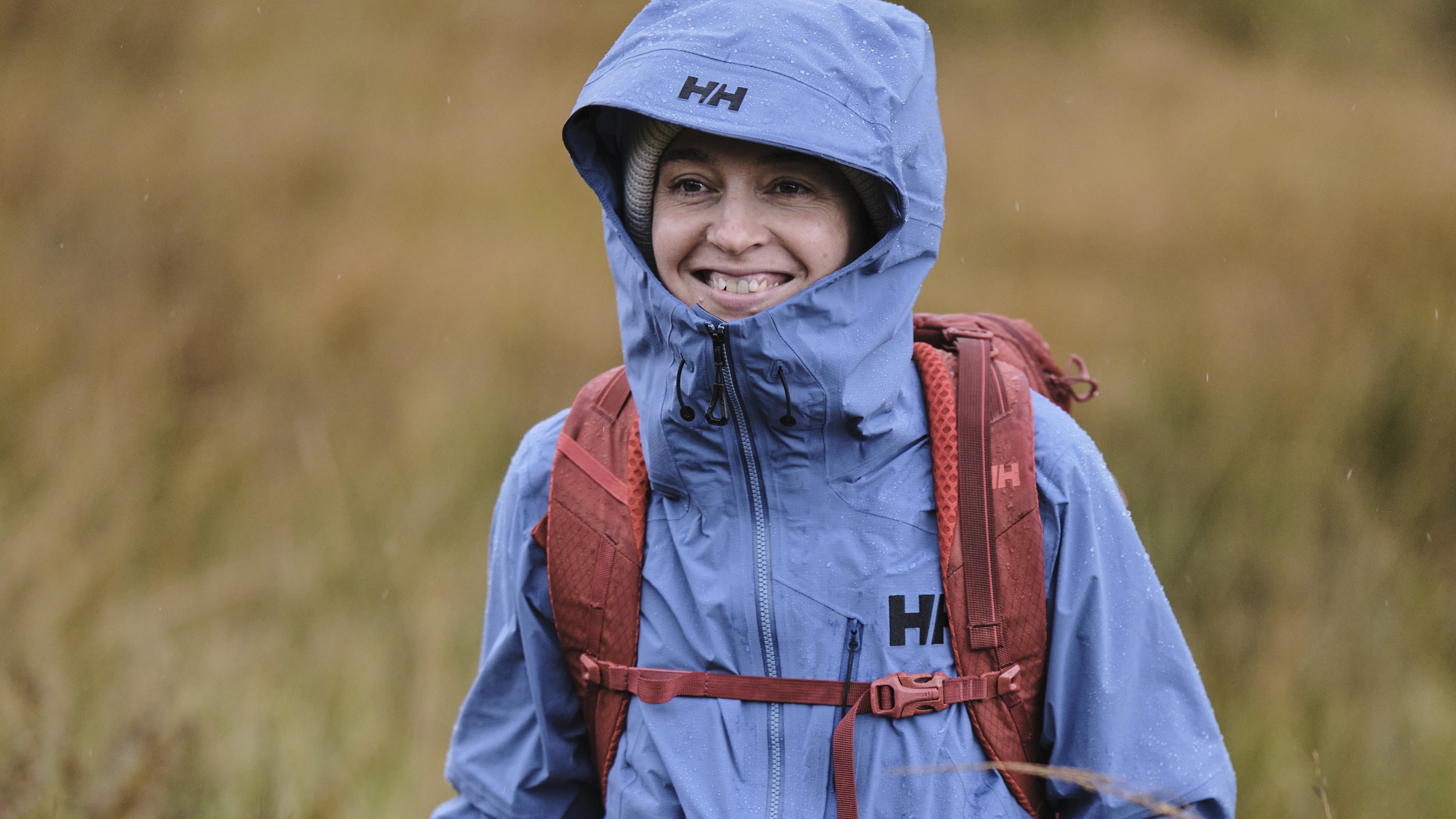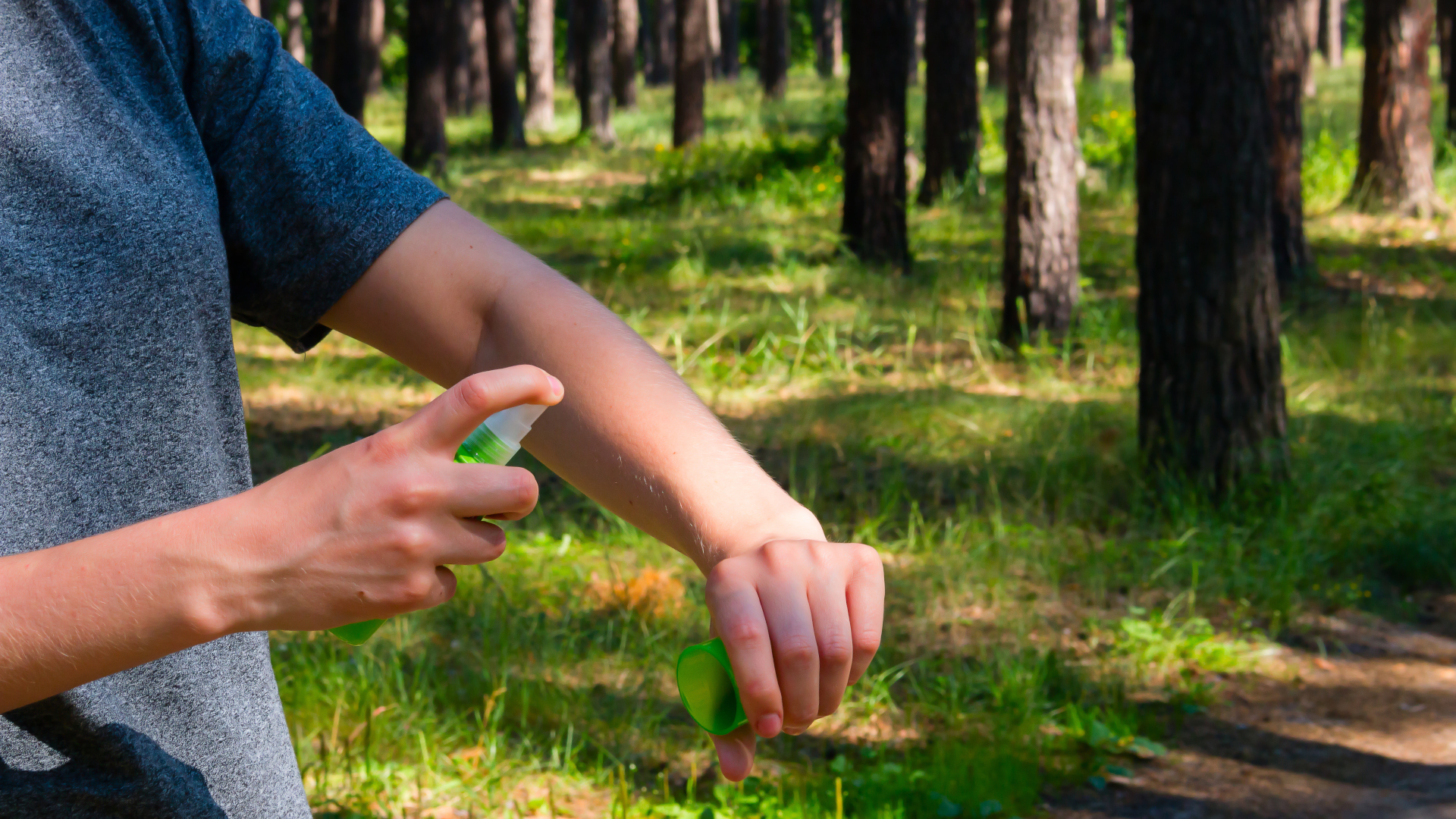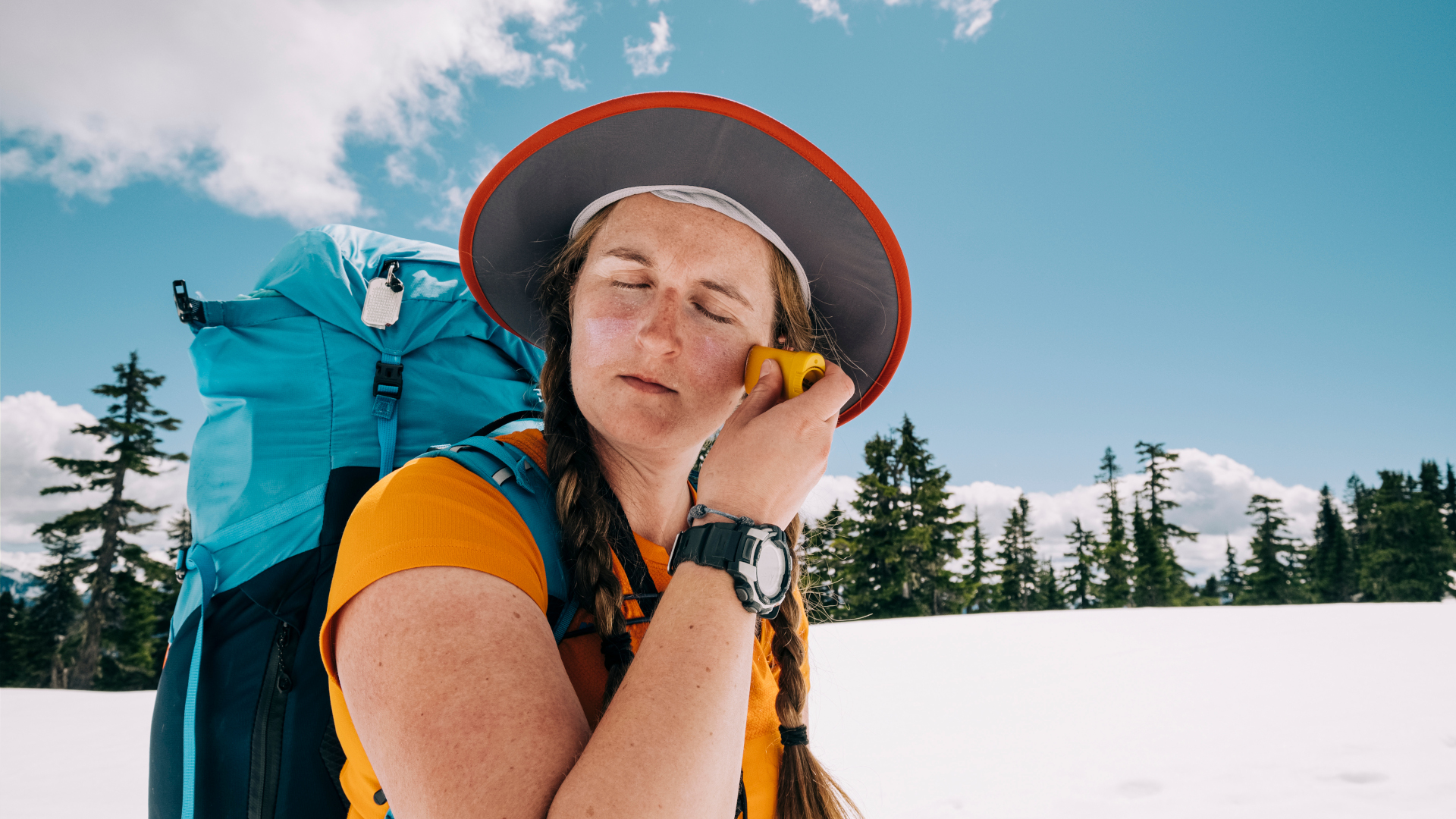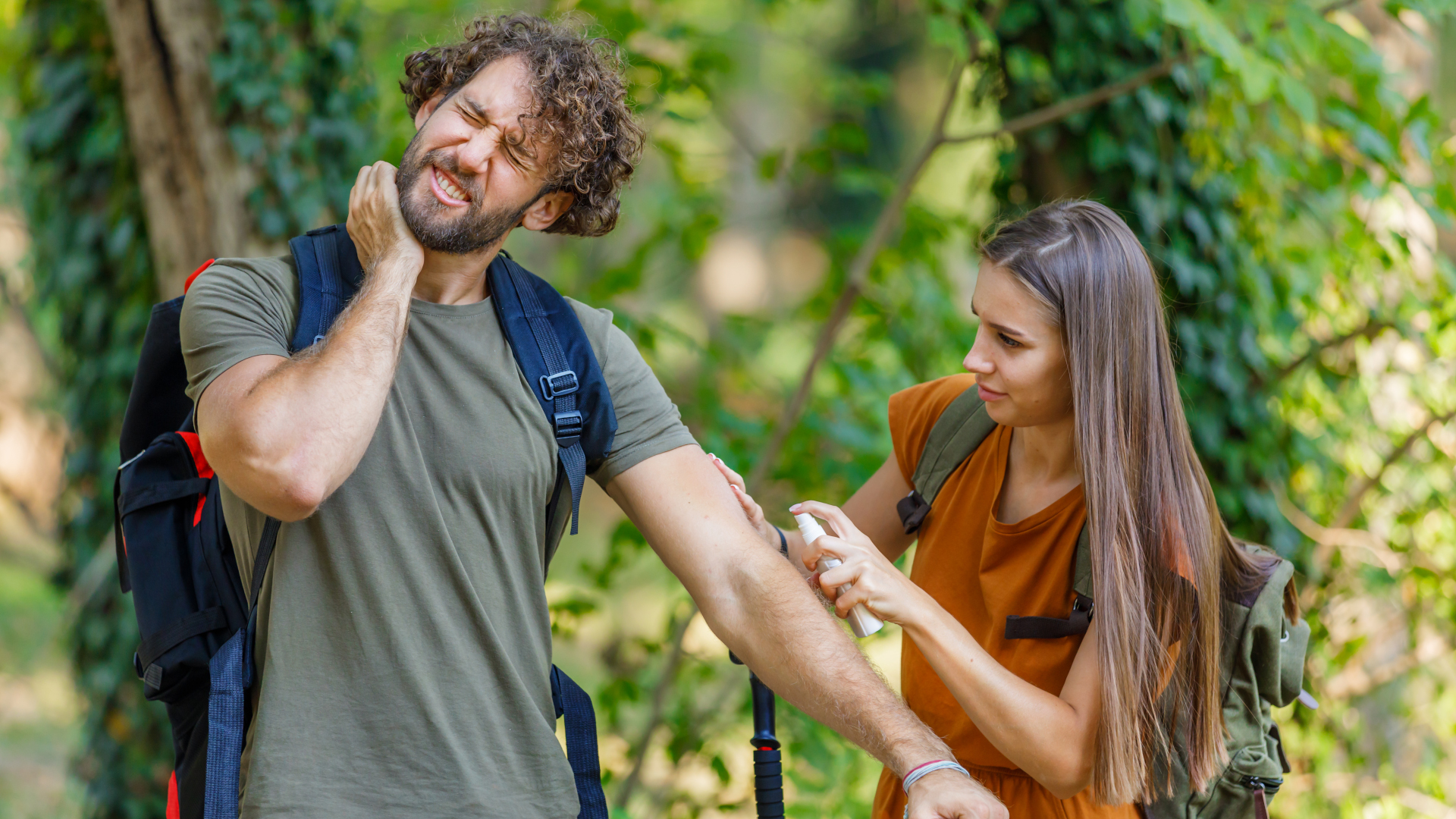What goes on first: bug spray or sunscreen? We find the answer
We ask our expert if it's bug repellent then sunscreen, or vice versa, that works best to keep your skin safe from the sun and insect bites

All the latest inspiration, tips and guides to help you plan your next Advnture!
You are now subscribed
Your newsletter sign-up was successful
Outdoor adventures have many benefits for physical and mental health but there can be a few hazards and they include strong sunlight and biting insects. You can deal with the danger of potential sunburn by covering your skin with clothing or applying sunscreen and biting beasts such as midges and mosquitos can be countered with repellents. But which which goes on first, sunscreen or bug spray, when you hit the trails in your hiking boots? Maybe, you might be wondering, should you combine the two for the best double protection?
We asked one of our hiking experts how best to use insect repellent and sunscreen together to tackle both UV rays and insects like mosquitos, ticks and midges.
Should you apply bug spray or sunscreen first?
The expert advice is to apply sunscreen first and let it soak in and dry. After this, you can safely apply bug repellent. It is important to continue to reapply both products over the course of you day depending on the guidance of each product.
Research suggests that applying insect repellent first, then sunscreen, can lead to your skin absorbing more DEET than it needs to. Insect repellent may reduce the effectiveness of sunscreen, so it's vital to let the sun protection soak in first.
See the latest detailed advice for more.
Meet the expert

Based in the Scottish Highlands, Julia is no stranger to using insect repellent to fend off the brutal Highland midge. And, contrary to what you might hear, it's sunny in Scotland fairly often too, so she's become something of an expert at applying both sunscreen and bug repellent.
Can you use both bug spray and sunscreen?
- Bug sprays that use DEET reduce the efficacy of sunscreen
- Sunscreen can enhance the absorption of DEET into the skin, which can be harmful
- Sunscreen is not thought to alter the effectiveness of bug repellent

Many of you want to know if you can use bug spray and sunscreen together, or if doing so reduces the efficacy of either. According to the Centers for Disease Control, bug sprays that contain DEET, the active ingredient in the most effective insect repellent products, have been shown to reduce the efficacy of the UVB protection in your sunscreen by as much as one third of the reported SPF on the label. So, while they’re pretty good at keeping bugs at bay, your skin might be more at risk of sun damage.
It also suggests that sunscreen may increase the absorption of DEET into your skin, which many would see as a concern since there is a common belief that DEET is toxic; that said, health experts who have studied DEET conclude that, when used properly, it is safe for the public, but that’s an ongoing debate.
All the latest inspiration, tips and guides to help you plan your next Advnture!
Meanwhile, a clinical trial published in the Journal of the American Academy of Dermatology confirmed that sunscreen does not impact the effectiveness of insect repellent. So, when using the two together, you don’t need to worry about increased exposure to bug bites, but there is some concern over making sure your skin is amply protected from the sun, while applying the two in the correct order may help reduce DEET absorption.

What's the latest detailed advice?
- The CDC suggests applying sunscreen first and waiting 15 minutes
- After this, apply bug repellent
- Reapply sunscreen every couple of hours and DEET repellent every six hours
- Use other sun protection tactics like wearing a hat and covering up
According to a 2011 clinical trial, applying bug spray first then covering it with sunscreen increases the absorption of DEET into your skin, while applying DEET-based repellent on top of sunscreen did not significantly increase dermal absorption.
On days that you need both sunscreen and bug spray, the CDC suggests that you avoid products that contain both substances as those are not as effective as two separate products. Instead, apply sunscreen first, wait 15 minutes for it to soak in and dry, then apply insect repellent on top of it. The theory is that this will allow the sunscreen to become more effective, without absorbing more DEET than you need to.

If you’re outside for a long period, remember that the timing for reapplication is different for the two products. Many sunscreen products require reapplication every two hours but DEET-based repellent many only need to be reapplied every six hours, so don’t automatically apply both each time.
To be extra safe, you can of course look into non DEET-based insect repellents, and make sure to incorporate other sun protection practices on very bright days, such as wearing a hiking hat, as well as a long sleeved base layer and hiking pants to cover your skin, so you’re not solely reliant on sunscreen.
Julia Clarke is a staff writer for Advnture.com and the author of the book Restorative Yoga for Beginners. She loves to explore mountains on foot, bike, skis and belay and then recover on the the yoga mat. Julia graduated with a degree in journalism in 2004 and spent eight years working as a radio presenter in Kansas City, Vermont, Boston and New York City before discovering the joys of the Rocky Mountains. She then detoured west to Colorado and enjoyed 11 years teaching yoga in Vail before returning to her hometown of Glasgow, Scotland in 2020 to focus on family and writing.

